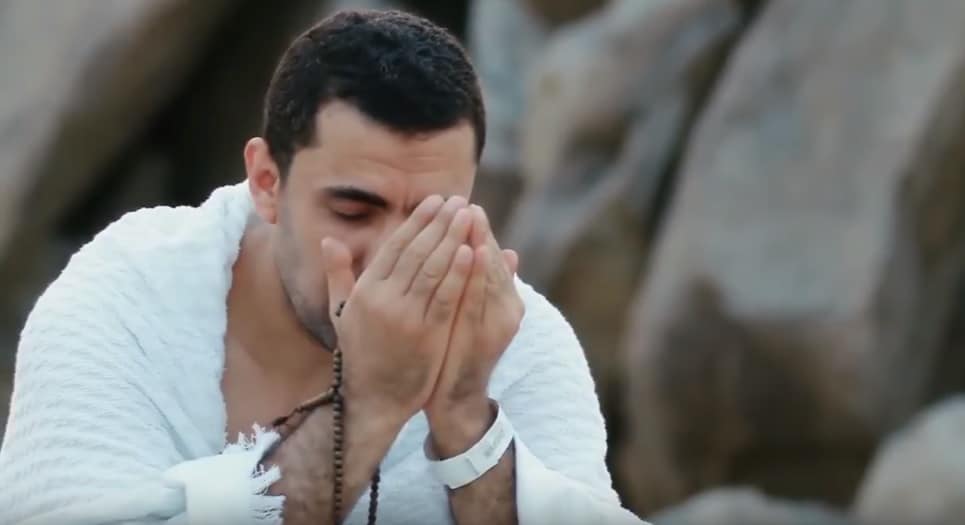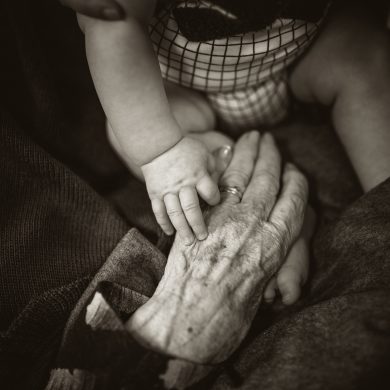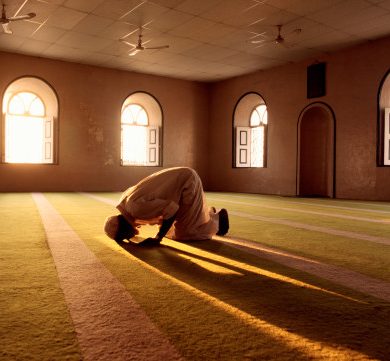Duaa of Imam Al-Sajjad on the Day of Sacrifice (Al-Adha) and on Friday
Duaa 48 of the blessed Sahifah Al-Sajjadiya is called The supplication of Imam Zayn Al-Abideen on the Day of Sacrifice (Al-Adha) and on Friday. The duaa begins with the following phrases:
اللَّهُمَّ هَذَا يَوْمٌ مُبَارَكٌ مَيْمُونٌ ، وَ الْمُسْلِمُونَ فِيهِ مُجْتَمِعُونَ فِي أَقْطَارِ أَرْضِكَ ،
يَشْهَدُ السَّائِلُ مِنْهُمْ وَ الطَّالِبُ وَ الرَّاغِبُ وَ الرَّاهِبُ وَ أَنْتَ النَّاظِرُ فِي حَوَائِجِهِمْ ،
فَأَسْأَلُكَ بِجُودِكَ وَ كَرَمِكَ وَ هَوَانِ مَا سَأَلْتُكَ عَلَيْكَ أَنْ تُصَلِّيَ عَلَى مُحَمَّدٍ وَ آلِهِ .
O Allah, this is a blessed and fortunate day, within in which Muslims are gathered in the quarters of Your earth.
Among them are present the asker, the seeker, the beseecher, the fearful, while You are looking upon their deeds.
Hence I ask You by Your munificence and generosity and easy upon You is what I ask You!¾ that You bless Muhammad and his Household.
Before we delve into the analysis of this passage, let’s examine what the Day of Sacrifice signfiies.
What is the Day of Sacrifice (Al-Adha)?
The Day of Sacrifice, or Eid Al-Adha, is on the tenth day of the Islamic month of Thul Hujjah and marks the completion of the pilgrimage made by Muslims from all around the globe. On this day, all pilgrims are required to sacrifice an animal in remembrance of prophet Ibrahim’s submission to Allah’s will when ordered to sacrifice his dear son, prophet Ismail. Allah replaced Ismail with a ram and Ismail was unharmed. The Day of Sacrifice at the completion of the pilgrimage is a reminder for Muslims of the willingness they should have for complete submission to the will of Allah, just like Prophet Ibrahim, as Allah states in the Quran:
لَن يَنَالَ اللَّهَ لُحُومُهَا وَلَا دِمَاؤُهَا وَلَٰكِن يَنَالُهُ التَّقْوَىٰ مِنكُمْ كَذَٰلِكَ سَخَّرَهَا لَكُمْ لِتُكَبِّرُوا اللَّهَ عَلَىٰ مَا هَدَاكُمْ وَبَشِّرِ الْمُحْسِنِينَ
[But bear in mind:] never does their flesh reach God, and neither their blood: it is only your God-consciousness that reaches Him And give thou this glad tiding unto the doers of good. (Al-Hajj, 37)
The sacrifice of the animal is symbolic and should represent the willingness one should have for sacrificing his own interests, inclinations and desires for the sake of Allah.
The significance of Muslim congregation and unity on Eid Al-Adha
In his blessed duaa, the Imam describes the Day of Sacrifice (Al-Adha) as ‘a day in which the Muslims are gathered in the quarters of Your Earth’. We gather from this that one of the most significant features of this blessed day is that Muslims in it are congregated from all over the world, regardless of any differences. They are united as equals before Allah, making a sacrifice to remind them of their unanimous goal of righteousness and worship of Allah. This congregation and unity of Muslims is one of the most fundamental underlying principles of Hajj, and of Islam as a whole. Allah highlights the importance of this concept in the Holy Quran when he says:
إِنَّ هَٰذِهِ أُمَّتُكُمْ أُمَّةً وَاحِدَةً وَأَنَا رَبُّكُمْ فَاعْبُدُونِ
Verily, [O you who believe in Me,] this community of yours is one single community, since I am the Sustainer of you all: worship, then, Me [alone]! (Al-Anbiyah, 92)
The emphasis of unity in the Quran, many hadiths and in this duaa highlights the importance of community and coherence. Man was not created to carry out everything in life individually, secluded from other people and not concerned about anyone besides himself, as the secular lifestyle encourages in this day and age. Islam recognises the importance of community, social constructs and peaceful interactions as a source of power and strength for the Ummah.
The Imam begins his duaa with the description of the blessed day of Al-Adha as one of unity. He then continues to describe the characteristics of the Muslims on this day: “Among them are present the asker, the seeker, the beseecher, the fearful, while You are looking upon their deeds.” Each and every Muslim on this day will have their own unique deeds, and will turn to Allah in their own way, seeking Allah’s pleasure through different means. However, all will stand before Allah yearning for his mercy and pleasure. Despite their differences they stand united praying to Allah. The Imam then beseeches Allah in the remainder of the duaa after portraying the powerful notion of a united Muslim Ummah. In this way, the Imam is showing us just how great the power of unity is: it is so great that he begins his duaa with it before asking he begins asking Allah for anything else.
The parallels between Fridays (Jummuah) and Al-Adha
Just as the Day of Sacrifice (Al-Adha) is considered a blessed day and a Eid for Muslims, Friday (Jumu’ah) is the most blessed day of every week. Friday is viewed by Muslims as a day of Eid each week. The Messenger of Allah said: “Indeed this (day of Friday) is a day of Eid (festival), which Allah has made for the Muslims. So whoever comes to the Friday (prayer), let him take a bath, and if he has perfume then let him put some on”. The Arabic word for Friday is Yawm Al- Jumu’ah, which literally means ‘the day of gathering or assembly’. Again, we see the recurring emphasis and importance of Muslim gatherings, congregations and unity in Islam. As Muslims, gathering for the purpose of uniting in the worship and pleasing Allah should not just be limited to Eid Al-Adha and Eid-al-fitr. In fact, it should be a weekly occurrence, at the minimum, on the blessed day of Friday.
May Allah give us the strength to unite and congregate as Muslims on the day of Sacrifice (Al-Adha) and every Friday and to recite the blessed duaa of Imam Zayn-Alabideen on these days, reflecting on it’s words, gaining closeness to Allah and attaining his pleasure and Mercy, ameen.
By Ghadir Abdul Ridha as part of Kalima Institute’s Dhul Hijja Project.






